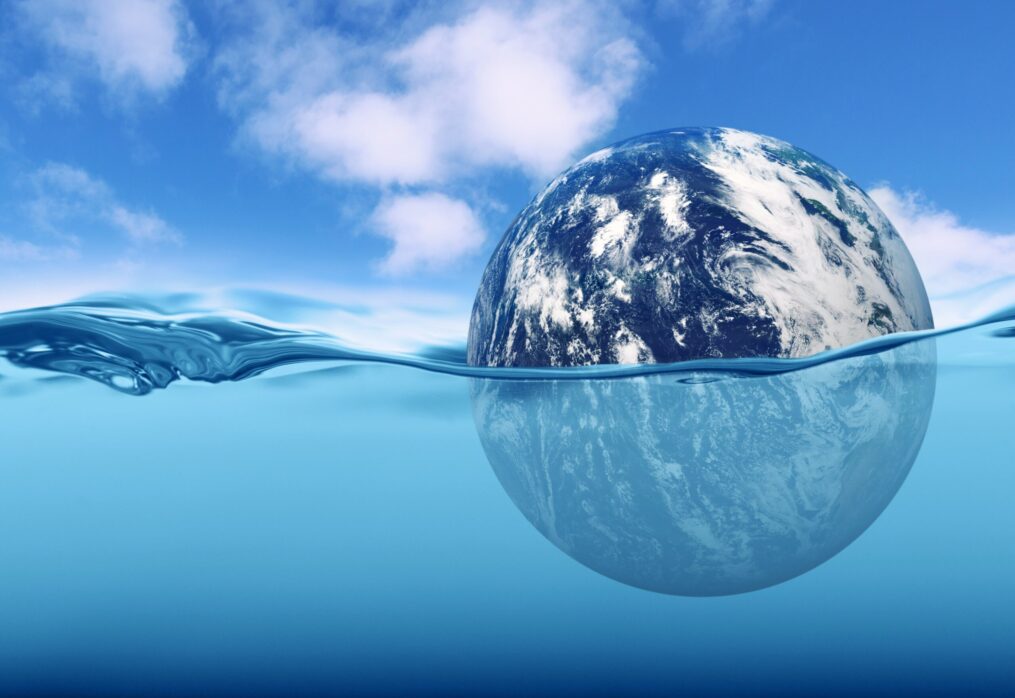Shore thing: climate change and maritime security intrinsically linked
Rising sea levels in Southeast Asia and the Pacific mean collaboration on maritime order is essential.
The recently released Sixth Assessment Report from the International Panel on Climate Change emphasised the urgency of adapting to and mitigating climate change in coastal regions to “prevent the further acceleration of sea-level rise beyond 2050”. Climate change is likely to have significant implications for maritime security, particularly so for the coastal and archipelagic states of Southeast Asia and the Pacific where existing challenges will be exacerbated.
According to the International Military Council on Climate and Security, climate change could alter security dynamics in the Indo-Pacific region, with increased piracy and transnational crime caused by climate displacement, poverty and overfishing due to pollution, ocean warming and acidification. This could overwhelm existing state resources and maritime security capabilities and increase the need for additional ocean management and policing.
In terms of the region’s population, the United Nations Refugee Agency predicts rising sea levels will create a humanitarian crisis. The Internal Displacement Monitoring Centre estimates that 65.9 million people became displaced due to natural disasters in Southeast Asia and the Pacific between 2008 and 2020. The United Nations estimates that by 2050, the Indo-Pacific could see as many as 89 million climate refugees, most of whom will come from Southeast Asia and the Pacific.
Climate change will also impact state sovereignty, with coastlines and maritime boundaries in flux due to rising sea levels. These shifts will impact the United Nations Convention on the Law of the Sea (UNCLOS) exclusive economic zones and how maritime zones are defined. Maritime boundaries are vital for ensuring access to resources and navigation rights. In Kiribati and the Marshall Islands, action is already being taken to combat sea-level rise. In Tuvalu, two of its largest islands are disappearing.
The blue economy, which incorporates renewable energy, fisheries, maritime transport, tourism and waste management is vital for economic security and livelihoods in Southeast Asia and the Pacific. Increases in floods and ocean acidification, for example, threaten the fishing industry on which 200 million people in the Indo-Pacific depend for food and jobs. Tuna fishing alone in the Pacific is a US$6 billion industry.
Southeast Asia has been classified as one of the regions most vulnerable to climate change, with all Association of Southeast Asian Nations (ASEAN) countries apart from Singapore listed in the top 50 most climate-affected between 1997 and 2016. The top ten included Myanmar, the Philippines, Vietnam and Thailand. Indonesia has the world’s second longest coastline, and Jakarta is the world’s fastest-sinking city. Parts of Ho Chi Minh City, Manila and Bangkok will be underwater by 2050.
Despite this, Southeast Asian states have faced criticism for climate inaction and failing to meet their Paris Agreement targets. This could be an opportunity for Southeast Asia and the Pacific to collaborate on climate affected maritime security issues. ASEAN’s maritime security capabilities are stronger than those of the Pacific, and the Pacific Islands are skilled at climate change activism. There is potential for both regions to cooperate to enhance their own maritime security and that of the Indo-Pacific.
Alongside climate change and maritime security, both regions are managing geostrategic competition between China and the United States. During times of geopolitical rivalry, smaller states’ security concerns must be heard among those of bigger states. For Southeast Asian states, the importance of ASEAN centrality in the broader Indo-Pacific regional architecture is key to ensuring that their concerns are heard. In the Pacific, attempts to reconceptualise the region’s island states into a collective under the “Blue Pacific Continent” strategy demonstrates a desire to address long-term climate challenges and empower Pacific voices.
Currently, there is little collaboration between ASEAN and the Pacific Islands Forum (PIF) on climate change and maritime security. Invitations to ASEAN and PIF meetings should be extended to regional counterparts to ensure a truly regional approach to these issues. Dialogues at the Track I and II levels between Southeast Asian and Pacific states would ensure more collaboration on shared climate threats to maritime security.
Southeast Asia and the Pacific could also unite to advocate “fixed” maritime boundaries as sea levels rise. ASEAN’s maritime law has been focused on strengthening UNCLOS to manage territorial disputes in the region, particularly in the South China Sea. At the 2021 PIF meeting, leaders committed to a Declaration on Preserving Maritime Zones in the Face of Climate Change-related Sea-Level Rise. The declaration recognises the importance of UNCLOS in determining maritime zones and advocates fixing maritime borders so they are not reduced due to climate-induced territorial erosion.
Indo-Pacific stakeholders, such as Australia, the United Kingdom and the United States, have an important role in bringing the two regions together. The three states have Southeast Asia and Pacific climate change programs, however more exchanges between the programs will ensure a holistic and regional approach to climate-related maritime security issues.
The effects of climate change on maritime security in Southeast Asia and the Pacific will challenge international legal norms, destabilise blue economics, threaten livelihoods and see mass displacement. The regions should team up to combat these transboundary issues, share oceanic resource management tips, and strengthen the UNCLOS-led maritime order.
Without a genuinely regional approach that includes the most affected coastal and archipelagic states in Southeast Asia and the Pacific, the Indo-Pacific will be unprepared for the impacts of climate change in its vast maritime domains.
This article is part of a series examining regional perspectives on maritime security. This project is led by La Trobe Asia, Kings College London and Griffith Asia Institute with the support of the UK High Commission in Canberra

